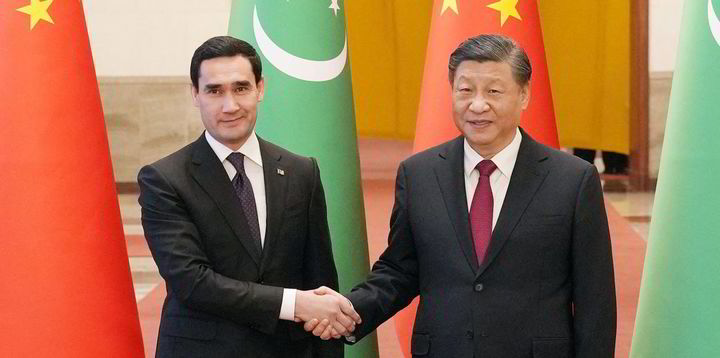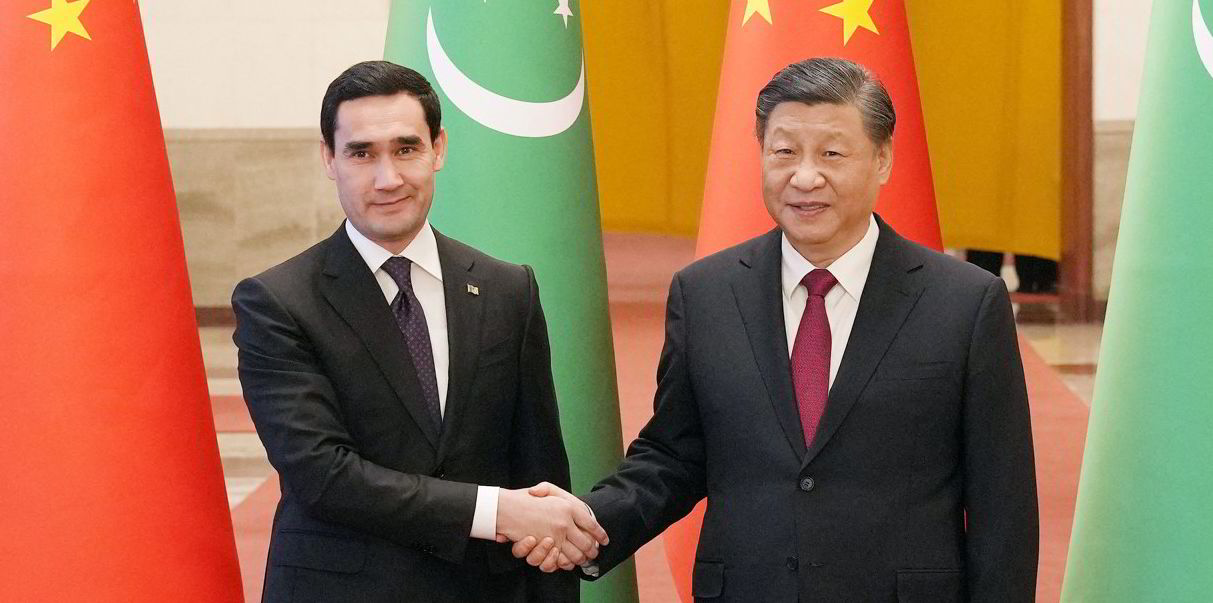Turkmenistan has changed its leading oil and gas officials once again as the country battles to overcome major challenges in the sector.
Despite having gas reserves second only to Russia, Turkmenistan has so far failed to fully exploit its potential in the industry, such as establishing itself as an additional source of natural gas for Europe.
The country was forced to reduce gas shipments to China last winter, and more recently its hopes of becoming a gas exporter to Europe were dealt a blow when its oil and gas sector was found to be among the world’s leaders for methane emissions.
In an effort to combat the problems, Turkmenistan President Serdar Berdymukhamedov announced another change of government oil and gas officials and company executives, just three months after an earlier shuffle.
Deputy Prime Minister in charge of energy issues Ashirguly Begliyev, who was appointed to the post on 10 February, is returning to his previous role as an adviser to Berdymukhamedov.
Batyr Amanov, executive chairman of state-run gas producer Turkmengaz, will take over as Deputy Prime Minister in charge of energy issues, with Turkmengaz deputy executive chairman Maksat Babayev promoted to lead the company.
Article continues below the advert
Turkmen troubles
Last winter, extreme low temperatures forced Turkmenistan to shut in some of the sour gas processing units servicing its largest gas asset, the Galkynysh onshore field, halting gas supplies to Uzbekistan and drastically reducing gas shipments to China.
Turkmen authorities this week sentenced former Turkmengaz deputy executive chairman Atamurat Charyyev to eight years in prison, according to independent news portal Turkmen.news.
Charyyev was reportedly charged with coordinating the purchase of low quality supplies to the processing plant earlier that are thought to have caused the stoppage of units.
Meanwhile, a recent report claiming Turkmenistan is a world leader in harmful methane emissions has put a stain on its oil and gas sector and may threaten its hopes of becoming a gas exporter to Europe, which is working to reduce the carbon footprint of its energy supplies.
UK newspaper The Guardian reported the findings of satellite intelligence company Kayrros, which monitored two Turkmenistan gas fields — one in the west and one in the south — that released emissions equivalent to 366 million tonnes of carbon dioxide in 2022.
In real terms, these emissions were in the form of leaked methane and totalled 4.4 million tonnes, according to Kayrros.
Last December, Berdymukhamedov met Azerbaijan President Ilham Aliyev and Turkish President Recep Tayyip Erdogan in the western Turkmen city of Awaza, with Erdogan reportedly offering his backing for a cross-Caspian gas pipeline connecting the two countries.
The proposed pipeline would aim to increase natural gas flows from Central Asia to Turkey, for onward distribution to southern and central Europe.
Turkmenistan is also looking to increase gas supplies to China by building a fourth leg along the existing Turkmenistan-China pipeline.
In January, Chinese President Xi Jinping told Berdymukhamedov that China wants more cooperation with Turkmenistan on energy, Reuters reported.

